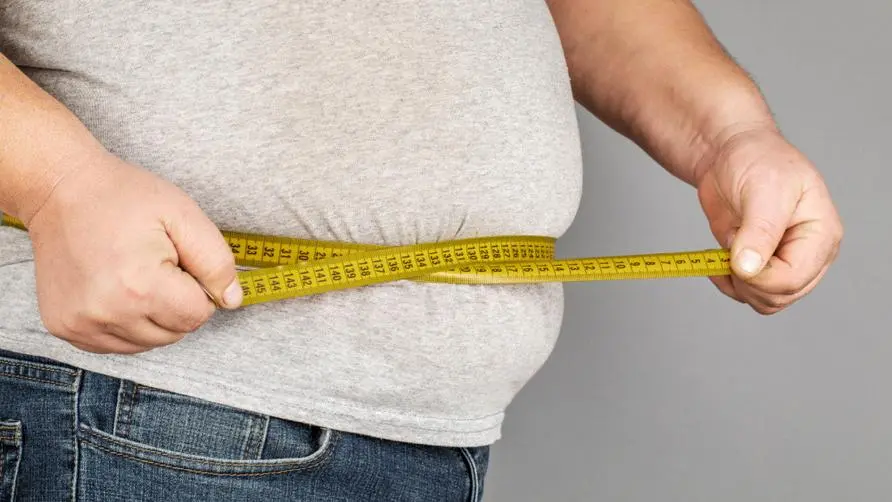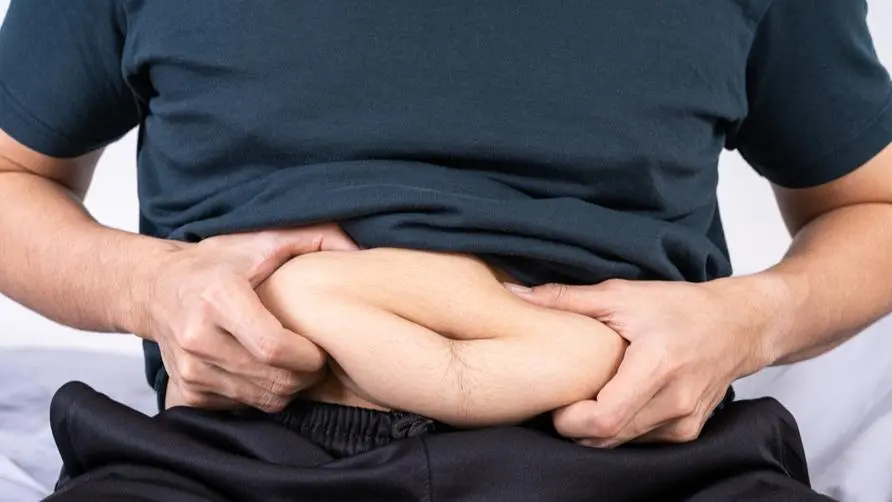Don't be fooled by the photos of celebrities and internet celebrities showing off their belly! Psychologist: Eating without getting fat is an illusion. 3 correct concepts are needed

Celebrities showing off their bodies to attract attention may increase psychological pressure and anxiety
The hot summer is the season when many people go to the beach to play in the water and show off their figures. With the popularity of social media, the trend of showing off your body in public to attract attention has become increasingly popular, causing many people to pay too much attention to body shape and weight loss, and have a wrong understanding of healthy posture. Experts remind that everyone’s appearance and posture are affected by various factors, and misinterpretations of body image should be avoided, which may cause psychological stress or even fear of food.
Psychologist Su Congqi, director of the Four Seasons Heart Psychological Counseling Center, pointed out that the amount of reports about body shape and weight loss increases in summer, and the media’s presentation angle and implicit message of celebrity and artist body issues can easily make people who are already troubled by their body shape more anxious. When reading these reports and photos, you should maintain three correct concepts: “Don’t compare numbers with body shape,” “Don’t associate diseases with body shape,” and “Don’t associate food with body shape.”
Don’t compare numbers with body shapes. Adjust your lifestyle correctly.
Psychologist Su Congqi said that emphasizing numbers such as age, kilograms, and waist circumference can easily lead to excessive expectations and fantasies about numerical values. In fact, everyone’s appearance and posture are affected by many factors, and you cannot fully control how it looks. The media and artists overemphasize numbers such as “37 years old”, “48 kg”, and “22 waists”, making people mistakenly think that after achieving these goals, they will be beautiful, confident and happy.
Psychologist Su Congqi pointed out that when uploading photos, many celebrities and celebrities often write “I weighed over 48 kilograms yesterday and I am so fat!”, “I am 24 in waist, super fat!” or put a weight of 46 kilograms on IG. The photos are paired with words such as “Oh my god, I’m fat”, which are actually statements that lack correct health concepts.
Psychologist Su Congqi suggested that instead of pursuing numerical standards, the public should be encouraged to adjust their lifestyles to make their bodies healthier. Eat the food you need to eat, do the exercise you need to do, and get the sleep you need to get. The body naturally exhibits a state of health that may not necessarily be called “thin”.
Don’t connect diseases with posture. Check your diet, exercise and sleep first.
“Fat” equals “disease” is also a common connection in modern culture. Psychologist Su Congqi said that some diseases can indeed cause obesity, but the main reason for obesity in many people is poor diet. In fact, there are not many diseases that can actually cause obesity. Celebrities and entertainers seem to gain more understanding and recognition because they focus on their external image and admit that they lack correct health habits. They claim that they are out of shape because of illness.
Psychologist Su Congqi reminds that instead of worrying about whether you have “endocrine disorders” and hoping to adjust your posture by taking medicine, protein powder supplements or even surgery, it is better to re-examine whether your lifestyle (diet, exercise and sleep) is healthy and regular. .
Don’t let the association between food and body shape make you fat. It’s just a media illusion.
The visual culture shaped by social media easily associates food with the posture of the person who posts it. Psychologist Su Congqi gave an example. When an obese person holds French fries in his hand, people who see him will think, “Why do you get fat if you eat French fries?” However, when a thin person holds a cake in his hand, many people will envy him, “That’s great!” You won’t get fat even if you eat it!"
From a health and scientific perspective, there is no such thing as “you can eat without getting fat”. Psychologist Su Congqi reminds that the photos or videos that contemporary people see in the media are only fragments of the lives of the people involved, and readers cannot understand the real lives of these celebrities and entertainers. Celebrities, entertainers and even Internet celebrities try to create a fashionable life and the illusion of “eating without getting fat”, usually in order to gain more people’s admiration.
“This is his job, not necessarily his life!” Psychologist Su Congqi pointed out that eating too much healthy food can also make you gain weight. If the intake of unhealthy foods is properly controlled, there is no need to worry too much. The key is to have a correct concept of food and know your own eating needs and portions - don’t let food become a source of fear.
Psychologist Su Congqi said that the interactive relationship between diet and body posture is different from imagination in many aspects. It is recommended that you stop being confused by celebrity stories, avoid being misled by news headlines, and don’t regard specific numbers as rewards. Live your own life. “What you should take care of most is yourself!”
Further reading:
Is eating less and moving more a big myth? Psychologist reveals 3 major weight loss mines





